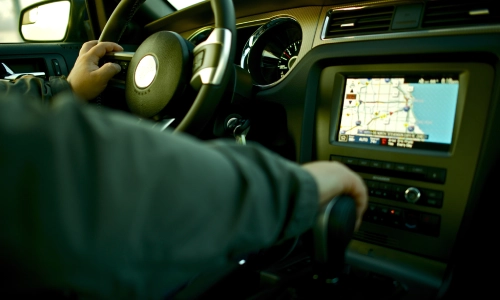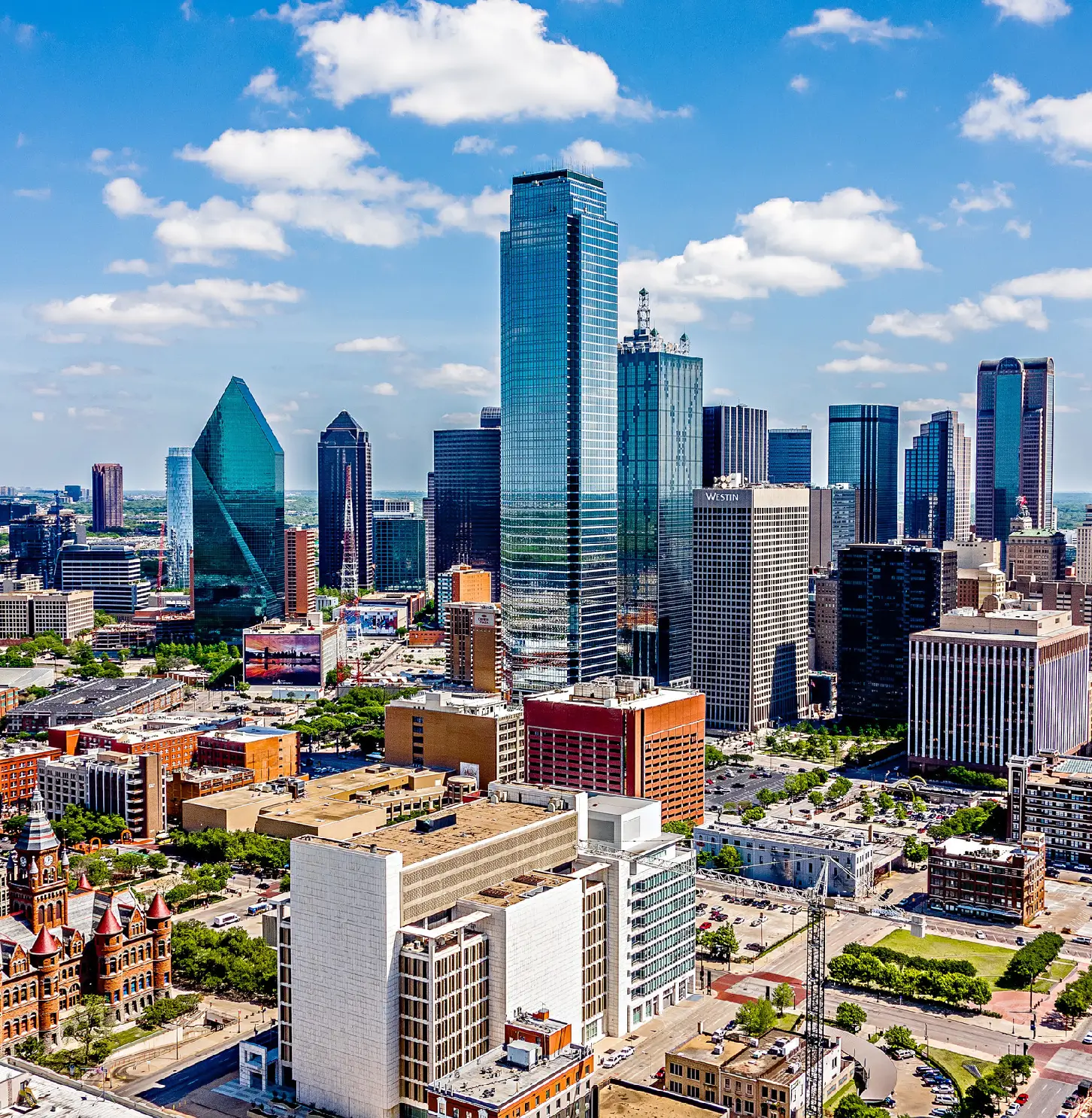
Because rideshare drivers are considered independent contractors, determining who’s financially responsible for your injuries isn’t always straightforward. That’s where legal experience becomes crucial. At the CEO Lawyer Personal Injury Law Firm, our team knows how to dig through driver status logs, insurance coverage windows, and app data to build a strong case for full compensation.
We don’t wait for the rideshare companies or insurers to do the right thing. We put pressure where it counts on the paperwork, in negotiations, and, if needed, in court. If you’ve been hurt in a rideshare-related crash, you deserve a legal team that won’t settle for the minimum and won’t back down from a challenge.
How a Texas Rideshare Accident Attorney Can Help You Navigate a Complicated Claim
Ride-share services like Uber and Lyft have become an essential part of how people move through cities across Texas.
But when accidents happen, determining fault and understanding who pays for damages isn’t always simple. Rideshare companies typically operate through independent contractors, making it harder to hold them directly accountable and even more confusing to figure out what coverage applies.
Whether you were riding as a passenger, driving another vehicle, walking across a street, or biking near a rideshare pickup zone, a crash can upend your life.
At the CEO Lawyer Personal Injury Law Firm, we help clients cut through the confusion with a focused legal strategy. We know how to handle cases that involve app-based drivers, layered insurance policies, and companies that try to avoid liability.
Common Causes of Rideshare Accidents
Rideshare accidents happen for many of the same reasons as typical crashes, but the added pressure of app demands, passenger distractions, and unfamiliar routes increases the risk. Below are the most common causes we see in rideshare injury cases.
Distracted Driving
Drivers often split their attention between the road and their phone, a recipe for disaster. Constant notifications, ride alerts, and navigation tools all pull focus from driving.
- Switching between GPS apps and rideshare apps mid-drive
- Responding to passengers or adjusting destination details while moving
- Failing to see traffic signs or pedestrians due to phone use
Fatigue and Overwork
Many rideshare drivers put in long hours to meet financial goals, often working late nights or back-to-back shifts.
- Drowsy driving impairs reaction time and judgment.
- Late-night fatigue increases the risk of swerving or missing traffic signals.
- Drivers may push past safe limits to complete more rides.
Unfamiliar Roads and High-Traffic Zones
Ride-share drivers frequently navigate areas they don’t know well, which can lead to dangerous decisions.
- Making sudden turns or lane changes due to missed exits
- Slowing down unpredictably while looking for passengers or drop-off points
- Getting confused at busy intersections, especially during rush hour
Aggressive or Risky Driving to Boost Tips
Rideshare drivers are rated by passengers and tipped based on speed, attitude, and efficiency. This system can unintentionally encourage unsafe driving behaviors.
- Speeding to reduce wait times or trip duration
- Running yellow lights or ignoring stop signs to stay on schedule
- Weaving through traffic or unsafe overtaking on highways
Poor Vehicle Maintenance
Some rideshare drivers fail to keep their vehicles in safe condition, which can contribute to accidents.
- Worn brake pads, faulty lights, or low tire tread
- Suspension issues or steering instability
- Lack of routine inspections or safety checks
Understanding Rideshare Accidents in Texas
When a rideshare accident occurs in Texas, victims are often left confused about how liability works and what factors may affect their ability to recover compensation.
Because rideshare drivers are independent contractors and not employees, determining who’s financially responsible depends on where, when, and how the crash occurred. Additionally, Texas has specific legal doctrines that influence how fault is assigned, even in straightforward cases.
Understanding the legal landscape can make a major difference in your outcome. From statewide negligence rules to the role of local courts and procedures, each layer matters when you’re seeking fair compensation after a rideshare-related crash.
Texas’s Modified Comparative Negligence Rule
In Texas, the amount of compensation you’re eligible to receive after a rideshare accident may be reduced based on your percentage of fault. Under the state’s modified comparative negligence rule, a victim can only recover damages if they are found to be 50% or less at fault for the accident.
This rule often comes into play in rideshare claims when insurers or defense teams try to argue that the injured party made a sudden stop, crossed unsafely, or contributed in some way to the crash. It’s a common tactic used to reduce payout amounts, and one we prepare for aggressively.
- If you’re found 20% at fault, your final compensation will be reduced by 20%
- If you’re 51% or more at fault, you’re barred from recovering damages
- Establishing strong evidence early is key to minimizing your assigned fault
Local Jurisdiction Considerations
While Texas state law sets the framework for negligence and liability, individual cities or counties may have specific procedures, court practices, or local traffic ordinances that influence how your case proceeds. For example, what’s standard practice in Houston may not align with procedures in Austin or smaller counties.
This matters because rideshare accidents often involve a mix of corporate policies, municipal records (such as traffic camera footage or 911 response logs), and court preferences for how evidence should be presented. Local knowledge gives your legal team an edge.
- Some jurisdictions move faster or slower through court scheduling
- Local traffic data can support location-specific danger zones or crash trends
- Jury attitudes toward rideshare companies may vary by region
Why a Texas Rideshare Accident Law Firm Is Essential in Complex Crash Cases
Ride-share accident cases in Texas require a different legal approach than standard vehicle collisions. With companies like Uber and Lyft involved, liability is often split between the driver, the corporation, and various insurance providers. As a result, pursuing compensation after a rideshare crash demands a law firm that understands these complexities and knows how to confront both corporate legal teams and insurance carriers.
At the CEO Lawyer Personal Injury Law Firm, we’ve handled a wide range of rideshare claims involving passengers, third-party drivers, cyclists, and pedestrians. We go beyond basic legal representation, bringing clarity, strategy, and tenacity to every case.
Key Factors in Rideshare Accident Cases
Not all rideshare collisions are alike, and several details can significantly affect how your case unfolds. From the driver’s app status to the involvement of third parties, rideshare injury claims often involve deeper layers of investigation.
Unique Aspects of Rideshare Accidents
- The driver’s app status determines which insurance policy applies
- Claims may involve both the driver’s insurance and Uber/Lyft coverage
- Victims can include passengers, other drivers, pedestrians, or cyclists
- Liability may extend to multiple parties beyond the vehicle operator
Understanding Texas’s Rideshare Insurance Coverage
Ride-share companies carry their insurance coverage, but only under specific conditions. Your ability to collect from these policies depends on the stage of the ride at the time of the crash.
Insurance Coverage Based on Driver Status
- App off: Only the driver’s insurance applies
- App on, waiting for a ride: Limited liability coverage from Uber or Lyft
- En route to or transporting a passenger: $1 million commercial liability coverage applies
Steps to Take After a Rideshare Accident
What you do immediately after a rideshare crash can protect your rights and preserve the value of your claim. Fast, informed action is key, especially before speaking with insurers.
Critical Actions for Protecting Your Rights
- Report the accident to the police and ensure a report is filed
- Seek immediate medical attention, even for minor symptoms
- Take photos of the scene, license plates, and injuries
- Collect contact info for the driver, any passengers, and witnesses
- Screenshot your rideshare trip details within the app
Challenges in Determining Rideshare Liability
Assigning fault in rideshare accidents can be tricky. Ride-share companies often try to avoid direct responsibility, and drivers may deny involvement or downplay their role.
Factors Affecting Liability Claims
- Whether the driver was logged into the app
- Actions of other involved drivers
- Third-party vehicle defects or road hazards
- Attempts by insurance companies to shift blame
Legal Precedents Impacting Rideshare Cases in Texas
Texas courts have recently heard cases that shape how rideshare accident claims are handled, particularly around driver status and corporate liability.
Recent Court Rulings That Influence Claims
- Cases have clarified when Uber/Lyft can be held liable beyond insurance
- Rulings around worker classification continue to evolve
- Local courts have begun to favor broader interpretations of liability in favor of injury victims
How the Comparative Negligence Rule Affects Your Claim
Texas follows a modified comparative negligence rule, which means your compensation could be reduced based on your percentage of fault in the accident.
Impact of Shared Fault in Rideshare Cases
- If you’re found partially at fault, your compensation will be reduced accordingly
- If you’re 51% or more at fault, you cannot recover damages
- Insurance companies often use this rule to limit payouts, so early legal help is essential
Damages You Can Recover After a Rideshare Accident
Rideshare accident victims may face a wide range of losses, including both economic and non-economic damages. A strong legal claim ensures these are fully accounted for.
Types of Compensation Available
- Medical bills (current and future)
- Lost wages and reduced earning potential
- Pain and suffering, mental distress
- Property damage or loss
- Long-term disability or reduced quality of life
Why Legal Representation Matters in Rideshare Accident Cases
Without legal guidance, it’s easy to be overwhelmed by the layers of insurance coverage, legal technicalities, and corporate policies in rideshare cases. Representation levels the playing field.
Benefits of Legal Representation in Rideshare Cases
- Accurate identification of responsible parties
- Access to rideshare app data and internal logs
- Pressure on insurers to negotiate fair settlements
- Legal protection from lowball offers or denied claims
- Full trial preparation if the case moves to court
Common Injuries in Rideshare Accidents
Ride-share services like Uber and Lyft have changed how we travel, but they also come with serious risks. When accidents happen, the injuries can range from minor soreness to life-changing trauma.
These crashes often involve multiple vehicles and unclear liability, which makes getting medical attention and legal guidance essential. Victims are often unaware of the full extent of their injuries until days later.
Soft Tissue Injuries
- Whiplash: Caused by sudden jerking motions, especially from rear-end collisions. Victims may feel fine right after the crash but develop neck stiffness, headaches, and back pain hours later.
- Sprains and Strains: Ankles, wrists, and knees are especially vulnerable during a violent impact. What feels like a sore joint might be a tear requiring physical therapy.
- Contusions and Bruising: While these may seem minor, deep bruises can limit mobility or signal underlying tissue trauma.
It’s important to keep medical documentation, especially with injuries that are often invisible to the eye. The CEO Lawyer Personal Injury Law Firm helps clients fight for full compensation even when the injuries aren’t dramatic but still disrupt everyday life.
Serious Injuries
- Fractures and Broken Bones: Arms, legs, ribs, and pelvis are commonly fractured in vehicle crashes. Recovery can involve casting, surgery, and months of rehabilitation.
- Spinal Cord Damage: From herniated discs to full paralysis, spinal injuries can alter every aspect of a person’s life. They also tend to require lifelong care.
- Traumatic Brain Injuries: A sudden blow to the head can cause concussions or more serious brain trauma. Symptoms might include memory loss, mood changes, and difficulty concentrating, sometimes appearing days after the accident.
These kinds of injuries demand a legal team that understands both the medical and legal sides of recovery. That’s why so many injured passengers and drivers turn to the CEO Lawyer. With over a million followers on social media and a track record of successful cases, Ali Awad and his team know how to win high-stakes personal injury claims.
Psychological Trauma
- Anxiety and Panic Attacks: Fear of getting into a vehicle again can disrupt work, school, or personal routines. Panic attacks may become a regular part of life without treatment.
- Post-Traumatic Stress Disorder: Flashbacks, nightmares, or heightened sensitivity to noise and motion can all be signs of PTSD. This can affect how victims interact with family, perform at work, or function socially.
- Depression: Loss of independence or chronic pain can lead to depression. When combined with mounting medical bills or time off work, the emotional toll becomes overwhelming.
Why Choose the CEO Lawyer Personal Injury Law Firm?
When you’re dealing with the aftermath of a rideshare accident, having the right legal team on your side makes all the difference. The CEO Lawyer Personal Injury Law Firm brings more than just legal knowledge; we bring a reputation for results, client-first service, and a relentless drive to win.
Our Texas car accident lawyers understand how stressful these situations are. From physical pain and emotional trauma to the financial toll of missed work and medical bills, the impact is real. That’s why our attorneys are committed to managing the legal complexities for you while you focus on recovery. Every step we take is aimed at protecting your rights and securing the compensation you deserve.
We know insurance companies try to pay out as little as possible. That’s why we come prepared with case strategies built around facts, professional opinions, and detailed investigations. We don’t settle for quick, lowball offers. We negotiate hard, and when needed, we go to court with a record that proves we know how to win.
Your case is more than a claim, it’s your future. And our job is to protect it.
Contact Us Today
Time matters after a rideshare accident. Delaying legal action can limit your options and reduce your compensation. The sooner you reach out, the sooner our attorneys can begin building a strong case on your behalf.
Contact us at (469) 461-4605 today to schedule your free consultation. Let the CEO Lawyer Personal Injury Law Firm be your voice and your advocate in your time of need.





